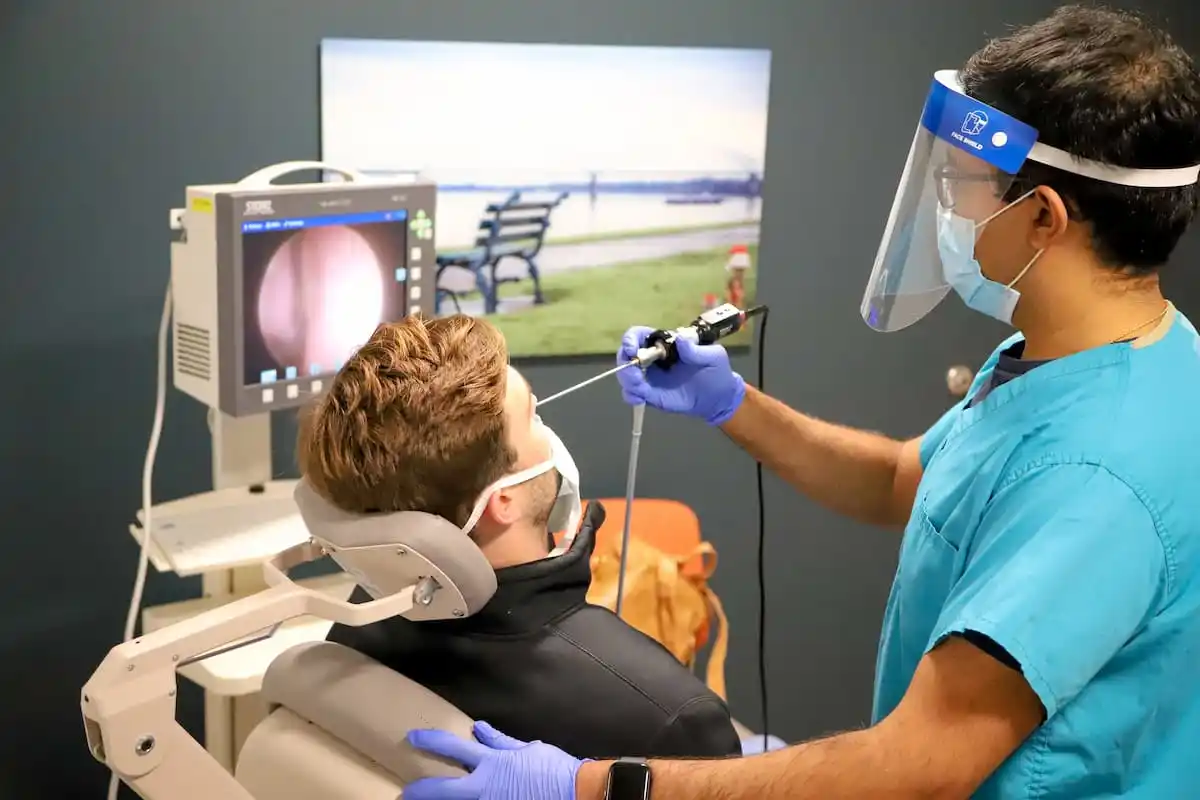
Persistent, progressively-worsening-and-unsettling changes in smell and taste can indicate potentially-serious-and-neglected illness before symptoms feel worrying, so recognising the signs early and understanding how ENT doctors investigate and treat these problems can make a big difference to both health and day to day quality of life.
Why loss of smell and taste really matters
Think about how many daily decisions depend on your nose and tongue. You notice smoke, gas leaks and spoiled food through smell long before you see any danger. Taste helps you enjoy meals, maintain appetite and keep a balanced diet. When these senses fade, people often lose interest in eating and can feel isolated or depressed. According to our editor’s research, many patients only realise the impact after months of dull flavours and flat aromas, not on the first day something changes. Smell and taste disorders are therefore not just small annoyances; they are safety, nutrition and emotional health issues rolled into one.
Common medical causes ENT doctors consider
ENT specialists start by thinking about the most frequent triggers behind these symptoms. Viral infections, including common colds and COVID infections, are leading causes of sudden smell loss worldwide. Chronic sinusitis and nasal polyps can physically block odour molecules from reaching the smell area. Allergic rhinitis, with long term nasal congestion, often plays a major role too. Head injuries, certain medicines and long standing neurological diseases can also disturb the smell and taste pathways. As a result of our editor’s reviews, doctors emphasise that around four out of five taste complaints actually relate to smell problems, not the tongue itself.
How ENT doctors start the first assessment
At the clinic, the first step is usually a detailed conversation. The doctor asks when the problem began and whether it followed an infection, trauma or medication change. You may be asked which foods now taste different and whether you notice any smells at all. Questions about allergies, sinus pressure, headaches and nasal blockage help separate nose problems from deeper neurological causes. The ENT doctor also checks for red flags, such as one sided nasal obstruction, nosebleeds or unexplained weight loss. According to our editor’s research, this careful history often gives the strongest clue about the underlying cause before any test is performed.
Examination and simple office tests ENT doctors use
After talking, the ENT doctor examines your nose, mouth and throat. A light and small speculum allow inspection of the front part of the nasal cavity. Many specialists then use a thin flexible camera to look deeper at the nasal passages and sinus openings. This procedure, called nasendoscopy, is usually quick and done with surface anaesthetic spray. It helps identify swelling, polyps, structural problems and suspicious growths. Some doctors also use simple smell identification cards or small vials with standard odours. These basic tests show whether the sense is reduced, distorted or completely absent, which guides the next steps.
Further investigations for complex or persistent cases
If symptoms last for weeks or the exam raises concern, more detailed tests may follow. Standardised smell tests measure how well you can detect, discriminate and identify different odours. In some centres, these tests use sets of scratch and sniff booklets with scored answers. Blood tests may be ordered to screen for thyroid disease, vitamin deficiencies or autoimmune conditions. Imaging such as CT of the sinuses helps show chronic inflammation, polyps or structural blockage. An MRI is sometimes used when there is worry about tumours or central nervous system causes. According to our editor’s reviews, ENT doctors try to keep investigations targeted, matching the tests to the patient’s story rather than ordering every option for everyone.
Medical treatments ENT specialists commonly prescribe
Once the likely cause is clear, treatment can be planned. For smell loss linked to sinusitis or nasal allergies, intranasal corticosteroid sprays are often a first line step. These medicines reduce swelling in the nasal lining and can open airflow to the smell region. Short courses of oral steroids may be used in selected, severe cases, although doctors weigh these carefully because of side effects. Saline rinses or sprays help clear mucus and allergens from the nose and support the effect of other therapies. When certain medicines appear responsible, ENT specialists may coordinate with other doctors to adjust or switch the drug if possible. According to our editor’s research, patients usually benefit most when inflammation, obstruction and any related condition such as allergy are treated together, not in isolation.
How olfactory training supports recovery
Over the past years, olfactory training has become a key supportive therapy. It involves regularly smelling a small set of distinct scents, such as floral, fruity, spicy and resinous notes. Patients are usually advised to focus on each scent for several seconds, twice daily, over many weeks. The idea is to gently stimulate the olfactory system and encourage neural adaptation or regeneration. Research has shown meaningful improvement for many people with post viral or idiopathic smell loss, especially when training continues for months rather than weeks. As a result of our editor’s reviews, ENT societies now highlight smell training as a low risk, low cost approach that patients can do at home, alongside medical treatment when indicated.
When surgery becomes part of the treatment plan
In some cases, structural problems are the main obstacle. Large nasal polyps can completely block airflow to the upper nasal cavity, where smell receptors sit. Marked deviation of the nasal septum or recurrent sinus disease may also restrict ventilation in that region. When medication fails to control these issues, ENT surgeons consider endoscopic sinus surgery or polyp removal. These minimally invasive procedures aim to clear obstruction, improve drainage and restore access for air and topical medicines. According to our editor’s research, surgery rarely guarantees full smell recovery but can significantly improve the chances when chronic blockage is the dominant factor. Doctors usually combine postoperative saline rinses, nasal steroids and continued smell training to support healing.
Approaches to taste disorders and dry mouth
True taste disorders are less common than smell problems, but they still matter. ENT doctors check for tongue infections, oral lichen planus, dental issues and side effects of medications that reduce saliva. Dry mouth from certain blood pressure tablets, antidepressants or cancer treatments can blunt taste perception. Local treatments may include saliva substitutes, sugar free chewing gum and careful oral hygiene advice. When zinc or other nutritional deficiencies are suspected, targeted supplementation may be considered after blood tests. According to our editor’s research, many people notice taste improvement once nasal airflow, saliva production and basic oral health are optimised together, even without complex medication changes.
Lifestyle changes that support ENT treatment
Everyday habits often influence how well treatments work. Avoiding smoking and second hand smoke is particularly important, because tobacco directly irritates nasal and oral tissues. Good management of allergies, including dust and pollen avoidance, reduces the frequency of flare ups that block smell pathways. Regular nasal saline rinses can become a simple daily routine, like brushing teeth, to keep mucus moving. A balanced diet helps maintain nerve and tissue health, while moderating very spicy or extremely hot foods may reduce temporary irritation. As a result of our editor’s reviews, ENT doctors increasingly encourage patients to track symptoms in a simple diary, noting triggers and improvements while treatments are adjusted.
Collaboration with neurologists and other specialists
Not all smell and taste disorders begin in the nose or mouth. Some arise from neurodegenerative conditions, head injuries or central nervous system disease. When the history or examination suggests this possibility, ENT doctors often involve neurologists or other specialists. Joint assessment can include more detailed imaging, cognitive testing or balance evaluation. Endocrinologists may be consulted when hormonal disorders like thyroid disease or adrenal problems are suspected. In cases linked to mental health conditions or severe mood changes, psychiatrists or psychologists may also support the treatment plan. According to our editor’s research, this multidisciplinary approach helps ensure that serious systemic causes are not overlooked, especially when smell loss appears slowly and without obvious nasal symptoms.
Warning signs that need urgent ENT attention
Some smell and taste changes should never be ignored. One sided nasal blockage, especially with frequent nosebleeds, requires prompt specialist review. Sudden complete loss of smell after head trauma also needs urgent assessment, because it may reflect shearing of the olfactory nerve fibres. Persistent headaches, double vision or facial pain alongside smell changes deserve quick investigation. Rapid weight loss due to appetite loss or fear of eating should also be discussed early. According to our editor’s research, quickly addressing these warning features can detect serious conditions such as tumours, aggressive sinus disease or severe infections at an earlier, more treatable stage.
Preparing for your ENT appointment and follow up
A little preparation can make consultations more productive. Keeping a short timeline of when symptoms started and how they changed helps the doctor immediately. You can list recent infections, new medications, head injuries and major life events. Bringing a complete medication list, including herbal products, reduces the chance of missing an important clue. It is also useful to note which foods now taste strange and whether smells are reduced or distorted. During the visit, do not hesitate to ask about realistic expectations, possible side effects and how long therapies might take to show improvement. As a result of our editor’s reviews, patients who feel informed and involved tend to follow treatment plans more consistently and report better satisfaction.
